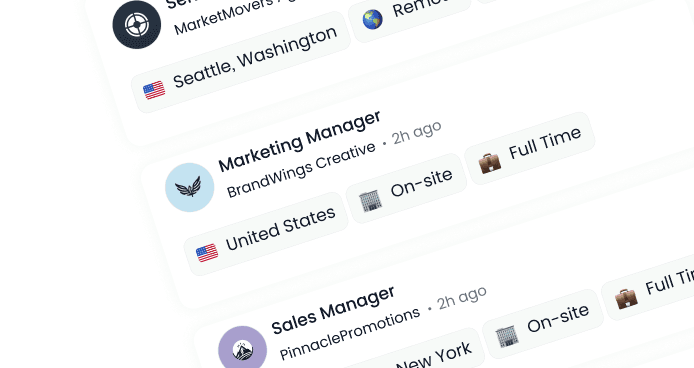The Rise of Candidate Experience Scores— Why Your Feedback Matters
Published:
August 5, 2025
All
Career Development
AI Recruitment
Job Seeker Tips
Hiring is no longer a one-way street.
Introduction
What if your last interview experience could actually shape how that company hires in the future? It can. According to a recent report, only 26% of North American job seekers describe their hiring experience as "great," while 13% say it was so poor they wouldn’t apply again or would even stop supporting the company altogether.
That’s where candidate experience scores come in. They’re not just HR trying a bluff; they really do matter. They’re changing how hiring teams evaluate and improve their process—and your feedback is at the center of it.
So without further ado, let’s start by defining what a candidate experience score is.
What Are Candidate Experience Scores?
The fact is companies have what you call employer branding—how they are perceived by people as a place to work. A major aspect of having a strong brand as an employer is how well they do with their hiring work. That is where the candidate experience score plays a major part; it gives employers an idea of how well they are doing when it comes to their recruitment process. In simple terms, you can think of it as a customer satisfaction score for job seekers.
If you’re wondering how they go about gathering such information, well, they might ask candidates to fill out a form at or during their recruitment process, or maybe even use automated feedback tools, and some even opt for platforms like Glassdoor. Factors such as interview behavior, transparency, and proper communication are gauged based on the feedback they get from their candidates. These scores are then used to see how well they are doing when it comes to hiring.
Another way employers go about gauging their hiring performance from the perspective of a job seeker is through NPS (Net Promoter Score) questions. In these, you might be asked how likely you would be to recommend their hiring process to other job seekers. Others track detailed sentiment across multiple stages, from application to final offer.
Having covered the formal definition of the CES (Candidate Experience Score) and how companies gather it, let us go in-depth as to why employers are paying attention.
Why There Is a Rise of CES
We touched upon employer branding in the previous section—the better an employer’s reputation, the stronger its brand “as the place to work.” So with recruitment becoming more competitive, it goes to say companies can’t lag behind if they want to attract and retain the top talent in the market. A poor experience can damage their reputation and reduce the chances of top talent applying again.
There have been several studies that support this; one research study showed that job seekers who had a good experience during their interviews and hiring process were more than 70% more likely to refer others even if they themselves didn’t make it. That’s a powerful stat—and smart employers know it.
Some organizations now include candidate experience scores in their HR performance metrics. For example:
HubSpot revised its interview scheduling after candidates consistently flagged delays.
Salesforce uses structured feedback to train hiring managers on bias-free questioning.
Zappos invites candidates to rate their experience immediately after each stage to improve in real time.
These aren’t just feel-good moves. They lead to higher offer acceptance rates and better retention.
Companies with strong experience scores often see a competitive edge. The good reviews they receive from candidates who have gone through their recruitment process work in their favor. These employers can attract top talent, and their tweaked hiring processes ensure that the dropout rate is kept at a minimum.

Interview Feedback Importance
While some might be of the opinion that their feedback is not that important, however, that couldn’t be further from the truth. The truth is feedback helps companies identify what’s broken. It could happen that a job ad description did not match the expertise they asked for. At the same time, their hiring process did not communicate as well as it should have and ghosted you. Or even the panel interview was chaotic and confusing.
So when you get the opportunity, you should tell them what happened. If not for yourself, then to help the next candidate so that they are treated better. It’s kind of like paying it forward in advance even though you might not get to reap the benefits immediately.
The feedback that you give allows the employers to improve upon the problems that you faced. If it was a biased interviewer or a question that you found irrelevant or inappropriate, if enough people give their feedback about it, it cannot be ignored. How do you think the changes currently happening in work culture and hiring came to be? Examples include the changes with respect to diversity, inclusion, work-life balance, mental health, etc.
In many cases, your feedback contributes to broader internal change—not just in hiring, but in how departments collaborate, how training is delivered, and how leadership evaluates performance.
A Sample Summary of Hiring Improvements due to Feedback
Candidate surveys aren’t just HR checkboxes. They can lead to:
Faster responses: Companies identify where bottlenecks happen.
Interviews can be more fair: When flagged and addressed, biases can be mitigated.
Better Job Ads: Feedback from candidates can result in better, more relevant job ad descriptions.
Better interviewer training: Feedback helps identify who needs improvement.
Reduction in Tech Glitches: Hiring tools and systems that might have errors or glitches are often flagged in feedback, allowing companies to get them fixed or to implement better ones.
Where You Should Leave Feedback
Some people might face a situation where the organization they applied to did not carry out a feedback survey. Well, there are still ways you can leave your valuable feedback, and that is through platforms.
Here are a few impactful platforms:
Glassdoor: Leave detailed reviews of your interview experience.
LinkedIn: Share a professional reflection (no ranting).
Company career portals: Many have optional surveys at the end.
Indeed: Offers employer ratings and interview review options.
Feedback doesn’t have to be long; just mention some short and concise points about what was good and what was not—as long as it is clear enough to be understood.
As a rule of thumb, you can focus on
Communication clarity
Interview pacing
Respect shown by interviewers
Technical issues (if any)
Overall impression of the process
This kind of input is gold for hiring teams trying to get better.
A Note on Transparency
Not every company uses your feedback well. Some still see it as a box-ticking exercise. But that’s changing. Some organizations even publish anonymized insights from feedback to show candidates they take it seriously. This transparency builds trust and helps reduce skepticism.
The more companies see this as a strategic advantage rather than a burden, the more seriously they’ll take it.
Final Thoughts—Don’t Skip the Feedback Form
Your voice matters more than you think. That short survey or review isn’t just a formality—it’s your chance to influence how hiring gets better for everyone.
The next time you’re asked for candidate feedback in hiring, take a minute to share your experience. Whether on Glassdoor, LinkedIn, or a company portal, your thoughts can lead to fairer, faster, and more human hiring processes.
Help the next candidate. Help yourself. And help make hiring better, one review at a time.
Find Your Dream Job
Put your best foot forward in your job search. Stand out from the crowd, and get hired fast!




